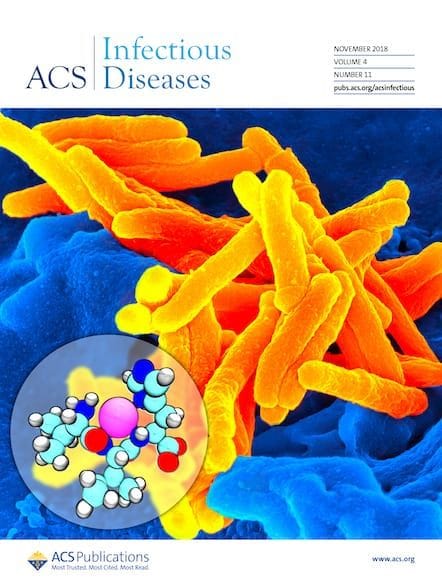In recognition of World Tuberculosis Day, held each year on March 24, we present a collection of interviews and research highlights from experts in the field who have published their work in ACS Infectious Diseases.

Tuberculosis (TB) remains one of the world’s leading infectious diseases. Every year on March 24, World Tuberculosis Day is observed to bring awareness to the efforts made across the globe to eliminate TB. On this day in 1882, Robert Koch discovered Mycobacterium tuberculosis (Mtb) as the causative agent of TB.
In 2024, ACS Infectious Diseases put out a Call for Papers inviting researchers to submit original work covering all aspects of TB biology and drug discovery for a Special Issue, "Combating Tuberculosis: Obstacles, Innovations, and the Road Ahead." Ahead of publication of this Special Issue later this year, we reached out to the Guest Editors and Authors to learn more about their research and where they anticipate the field is progressing. We hope you will be inspired by their research and the impact they are making in this field. It is only with the collective research efforts of scientists worldwide, spanning across disciplines, that we can fight this deadly disease.
Learn more about the Guest Editors of the Special Issue:
Dr. Varadharajan Sundaramurthy

Dr. Varadharajan Sundaramurthy has a long-standing interest in host-pathogen interactions, starting from his Ph.D. at the Indian Institute of Science. Currently, his lab at the National Center for Biological Sciences (NCBS), Bangalore is focused on understanding the manipulations of fundamental host cellular processes by Mtb. They are pursuing two major areas of research, namely modulation of host lysosomal homeostasis by Mtb, and heterogeneity in host-Mtb interactions. A broader underlying theme is to exploit the emerging knowledge for host-directed therapeutics against TB.
Prof. Erick Strauss

Prof. Erick Strauss is a Professor of Biochemistry at Stellenbosch University, currently leading the Grand Challenges Africa Drug Discovery Accelerator flagship project for tuberculosis drug discovery. This is a consortium of African scientists whose teams are exploring the potential of using targeted protein degradation as a strategy for developing new antituberculosis drugs.
Learn more about these featured authors and their research:
Prof. V. Nagaraja
Tuberculosis Article: Multifunctional Mycobacterial Topoisomerases with Distinctive Features
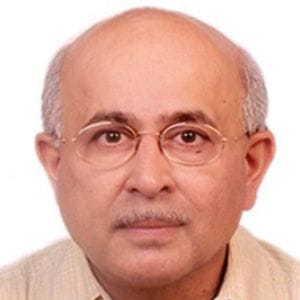
Prof. V. Nagaraja, currently Professor Emeritus at Indian Institute of Science, and a Distinguished Professor at IISER, Bhopal has been teaching microbiology and molecular biology and also involved in popularizing science in schools and colleges. His research interests are on molecular biology of mycobacteria with emphasis on DNA topoisomerases, nucleoid associated proteins and regulation of gene expression. He has to his credit 225 publications, 600 presentations, several patents, and biotechnology products licensed to industries.He has mentored about 45 Ph.D. students and trained hundreds of young researchers.
Prof. Tanya Parish
Tuberculosis Article: 8-Hydroxyquinoline Series Exerts Bactericidal Activity against Mycobacterium tuberculosis Via Copper-Mediated Toxicity

Prof. Tanya Parish is a Professor at the University of Washington & Principal Investigator in the Center for Global Infectious Disease Research (Seattle Children’s Research Institute). Her research is focused in two main areas: (i) understanding the biology of the global pathogen Mycobacterium tuberculosis and (ii) discovering and developing novel drugs for tuberculosis (TB).
Prof. Jansy Sarathy
Tuberculosis Article: Role of DNA Double-Strand Break Formation in Gyrase Inhibitor-Mediated Killing of Nonreplicating Persistent Mycobacterium tuberculosis in Caseum

Prof. Jansy Sarathy is an Assistant Professor at the Hackensack Meridian School of Medicine, and an Assistant Member at the Center for Discovery and Innovation. Her research focuses on applying site-of-disease pharmacokinetic-pharmacodynamic (PK-PD) concepts to rationalize TB treatment efficacy. She is particularly interested in addressing nonreplicating persistent populations of M. tuberculosis in hard-to-treat sites of infection.
Titilade Kehinde Ayandeyi Teibo
Tuberculosis Article: Barriers That Interfere with Access to Tuberculosis Diagnosis and Treatment across Countries Globally: A Systematic Review

Titilade Kehinde A. Teibo, is a third year Ph.D. student at the Department of Public Health Nursing at EERP USP, University of Sao Paulo, Brazil. She is dedicated to solving public health problems by developing research that aims at filling gaps in the area of epidemiology, health equity and infectious diseases.
Dr. Rahul K. Verma
Tuberculosis Articles:
Breaking the Cycle: Matrix Metalloproteinase Inhibitors as an Alternative Approach in Managing Tuberculosis Pathogenesis and Progression
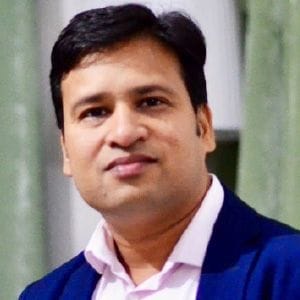
Dr. Rahul K. Verma, Scientist-E and Associate Professor at INST, India, is a former Visiting Scientist at Harvard Medical School, USA. He earned his Ph.D. from CDRI, Lucknow, and an M.S. from NIPER, Mohali, India, followed by postdoctoral research at the University of Oklahoma, USA. With over 85 peer-reviewed publications, his research focuses on tuberculosis, emphasizing therapeutic peptide design, drug repurposing, and novel formulations.
Prof. Jianping Xie
Tuberculosis Article: Mycobacterium smegmatis MraZ Regulates Multiple Genes within and Outside of the dcw Operon during Hypoxia

The Xie Lab focuses on leveraging the cutting-edge conception and technologies to find better diagnostic and treatment for tuberculosis, largely via the integrating view of mycobacteriophage-Mycobacterium-Host (Patient) interactions, including but not limited to genetics, microbiology, immunology, bioinformatics, artificial intelligence. Professor Xie is one of the most active internation leader in this field, especially the drug target for novel antibiotics against TB, and Editor-in-Chief of several renowned academic journals. He has mentored more than 200 post-graduates and Ph.D. candidates from Europe, Africa, Asia, America. Most graduated students have been the academic leaders in this field too.
Dr. Renier van Neer, Dr. Trish Dranchak, and Dr. James Inglese
Tuberculosis Article: Active- and Allosteric-Site Cyclic Peptide Inhibitors of Secreted M. tuberculosis Chorismate Mutase

Our laboratory explores approaches to therapeutically target the genes, proteins and pathways that drive chronic, rare and infectious diseases.Projects often employ emerging technologies tested in drug discovery settings, and new concepts underlying novel drug and molecular probe modalities are evaluated within these assay platforms.
Dr. Jeremiah J. Gassensmith, Dr. Gabriele Meloni, and Dr. Angelo Izzo
Tuberculosis Article: Testing the Antigenic Potential of Transmembrane Proteins To Develop a Thermostable Tuberculosis MOF-Liposomal Vaccine

Dr. Jeremiah J. Gassensmith is an Associate Professor of Chemistry and Bioengineering at the University of Texas at Dallas. His research focuses on integrating biological materials with highly crystalline systems, particularly in the development of metal-organic frameworks (MOFs) for biomedical applications. His work explores novel vaccine formulations and nanomaterials for targeted therapeutic delivery.
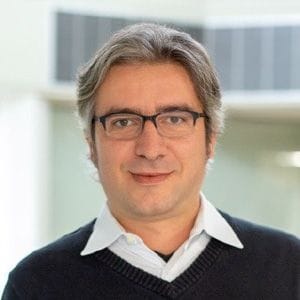
Dr. Gabriele Meloni is an Associate Professor in the Department of Chemistry and Biochemistry at the University of Texas at Dallas. His research is centered on bioinorganic chemistry, with a particular focus on understanding the role of transmembrane transition metal transporters in health and disease. His work investigates the structure and function of metal-binding proteins and their potential for therapeutic applications.

Dr. Angelo Izzo is a leading tuberculosis researcher at the Centenary Institute, University of Sydney. His work focuses on tuberculosis pathogenesis, vaccine development, and novel therapeutic interventions. He has contributed significantly to understanding TB immune responses and the advancement of next-generation vaccines.
Prof. Ashis Biswas and Dr. Alok Kumar Panda
Tuberculosis Article: Mycobacterial small heat shock proteins: Dissecting their roles in pathogenesis and development of therapeutics
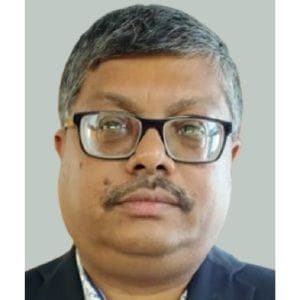
Prof. Ashis Biswas is an academician and researcher at the School of Basic Sciences, IIT Bhubaneswar. He did his Ph.D. in Chemistry from Bose Institute, Kolkata, India. His research focuses on protein misfolding and aggregation, molecular chaperones and post-translational modifications, with a special emphasis on small heat shock proteins (sHsps).
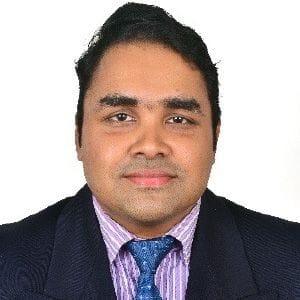
Dr. Alok Kumar Panda is an Assistant Professor of Chemistry at KIIT Deemed to be University, Bhubaneswar, India. He did his Ph.D. in Biophysical Chemistry and Biochemistry from IIT Bhubaneswar. His research interests include biophysical chemistry, biochemistry and natural products, with a focus on environmental and water remediation.
Explore additional articles included in this ACS Infectious Diseases Special Issue
Anti-Mycobacterial Activity of Bacterial Topoisomerase Inhibitors with Dioxygenated Linkers
Building Spatiotemporal Understanding of Mycobacterium tuberculosis-Host Interactions
Potential of Mycobacterium tuberculosis Type II NADH-Dehydrogenase in Antitubercular Drug Discovery
Immunomodulatory Nanoparticles Induce Autophagy in Macrophages and Reduce Mycobacterium tuberculosis Burden in the Lungs of Mice
Rv2741 Promotes Mycobacterium Survival by Modulating Macrophage Function via the IL-1α-MAPK Axis
